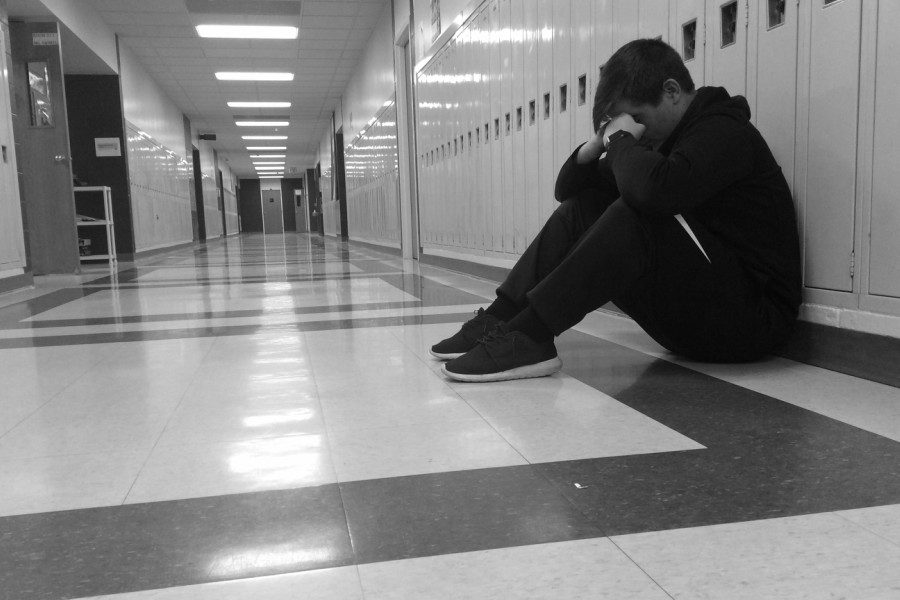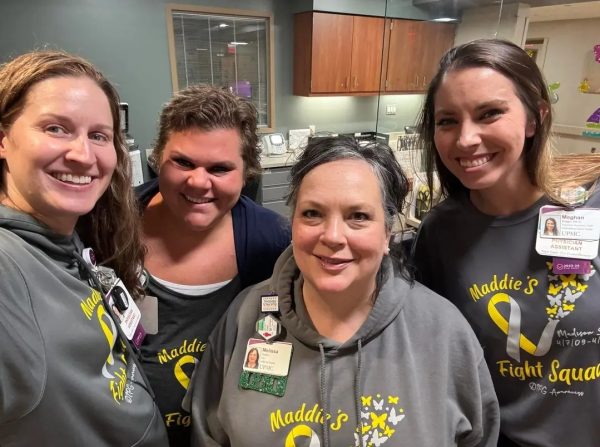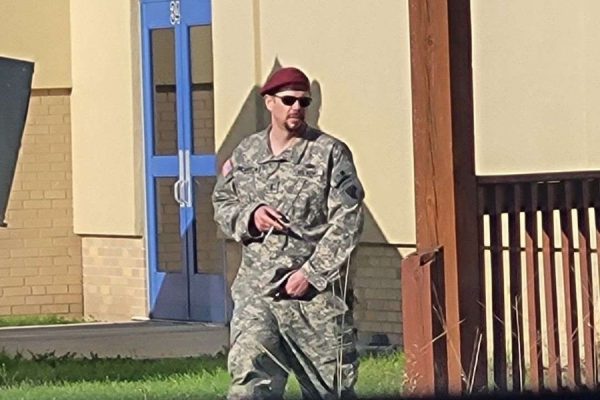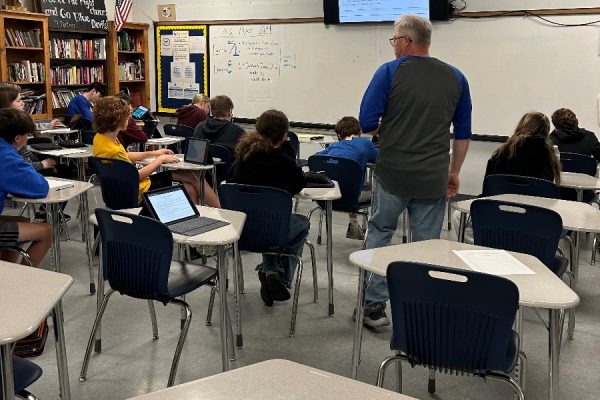B-A teachers receive training on student trauma
Bellwood-Antis teachers learned about addressing student trauma on their most recent in-service day
January 20, 2017
It’s something we all know about, yet a subject nobody will talk about, though it affects students everyday: trauma.
“I think it’s happening more and more, it’s a silent epidemic,” said Bellwood-Antis social worker Mrs. Julie Heckman.
Last Friday the Bellwood-Antis teachers and administrators used their in-service day to discuss student trauma and the effects of stress on students in school.
I think it’s happening more and more, it’s a silent epidemic.
— Mrs. Heckman
Mrs. Heckman, gave a presentation to the staff geared towards the distressing experiences students face and how to work with them efficiently in the classroom.
“I talked to them about how teachers can see signs of kids that are going through it and how to address it in the classroom,” said Mrs. Heckman. “I did hands on, if a child is going through this what you can do, actual ideas for teachers to intervene with students, strategies for teachers.”
Julie found student trauma to be a worthwhile instruction for teachers due to how common it is for students to have more outside stresses than the teachers know of.
“There’s so much more stress on kids now and so much more going on with kids that I think it’s important for teachers to know. I think it’s a combination of a lot of things,” she said. “Everybody wants everything right now. We’re not patient, not willing to wait or have conversations with people. There’s too much going on, they have social media, their friends, activities. It’s difficult to handle all those different things.”
Mrs. Heckman went on to explain how student trauma affects others around the student.
“I gave them ideas on how it would affect a teacher and what they can do to take care of themselves because it’s a lot on teachers who are interacting with families who are going through it,” she said.
Mrs. Heckman’s presentation provided ways to discuss with parents the stress on their kids in an appropriate manner.
“I also talked to them on how to communicate with parents that might be going through it whether their child is going through it and they’re being affected by it, or they went through a trauma themselves and the child is getting the backlash, how to interact with those parents and how to be patient with them,” Mrs, Heckman said.
High school math teacher Mrs. Dawn Frank found the lesson on student trauma very beneficial.
“Often there’s a lot of things going on in student’s lives we’re not filtered into,” said Mrs. Frank. “Its nice to know that if you’re off kilter during class it’s not just something that happened five minutes ago, it’s something bigger. It’s important to have a head’s up, maybe not going into big detail, but just if a specific someone is having a hard time. When she (Mrs. Heckman) brought up how many students she sees in a day, none of us really knew how many it was.”
Mrs. Heckman’s instruction on what teachers can do was simple, and much of it came down to awareness.
“Always have your eyes out for it and be aware that anybody can be going through it, and if you don’t think they are just always have your eyes on students and be willing to listen,” Mrs. Heckman said.
Mrs. Heckman’s goal was not only to inform on how to help, but to remind teachers their impact on students’ lives.
“Teachers need to know that they’re really important and they have power in these kids lives and just not to forget how important they are to kids.”
















